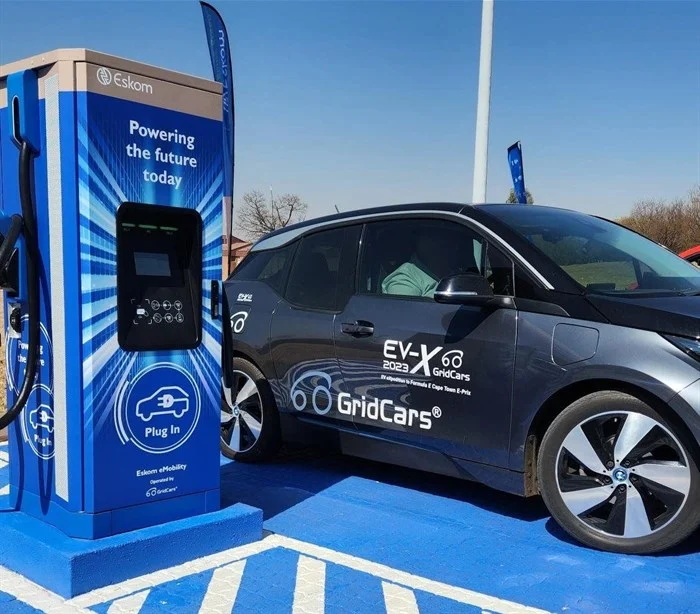Eskom has officially launched its electric vehicle (EV) charging infrastructure at the Eskom Academy of Learning (EAL) in Midrand, Gauteng.“This milestone marks a significant step in Eskom Distribution’s commitment to supporting the growth of the e-mobility sector in South Africa and contributing to the country’s broader goals of reducing carbon emissions,” the state-owned power utility said.
According to Eskom, the pilot project includes the procurement of 20 EVs ranging from light delivery vehicles to light trucks for operational use.
The pilot project also involves the installation of 10 charging stations at five Eskom sites across the country.
The other sites are Brackenfell in Cape Town, Mkondeni in Pietermaritzburg, Tlhabane Customer Network Centre (CNC) in Rustenburg and Marathon CNC in Mbombela.
These sites will serve as the foundation for Eskom Distribution’s long-term strategy to electrify its entire fleet by 2040.
“We continue to focus on our long-term strategy to deliver a competitive, sustainable, and future-proof Eskom to ensure energy security, growth, and long-term sustainability for the benefit of South Africa and sub-Saharan Africa,” said general manager in the office of the Eskom Group Executive for Distribution, Gabriel Kgabo.
By investing in e-mobility and the charging infrastructure needed for EVs, Kgabo said Eskom was not only reducing its carbon footprint but also stimulating the local economy and creating new growth opportunities.
Kgabo highlighted Eskom’s support of the government to align South Africa with the global EV ecosystem market.
Key initiatives include the EV White Paper released by the Department of Trade Industry and Competition in December 2023 and the incentives announced by the National Treasury to encourage the local production of EVs from 2026.
Pilot project overview
The recently installed charging stations, in collaboration with Gridcars, feature state-of-the-art direct current fast chargers (60kW) and dual alternating current (AC) chargers (22kW).
They are optimised for overnight charging of fleet vehicles and daytime workplace charging for employees and visitors.
The power utility believes this initiative will serve as a blueprint for the future rollout of EVs across Eskom’s entire fleet.
“It is one of the levers that will steer the organisation towards net zero carbon emissions by 2050 and will also contribute to stimulating the local EV market.
“The successful launch of this infrastructure is a result of the dedicated efforts of the project team within Eskom. Their work is laying the groundwork for a future where electric vehicles play a central role in South Africa’s transportation landscape.”


